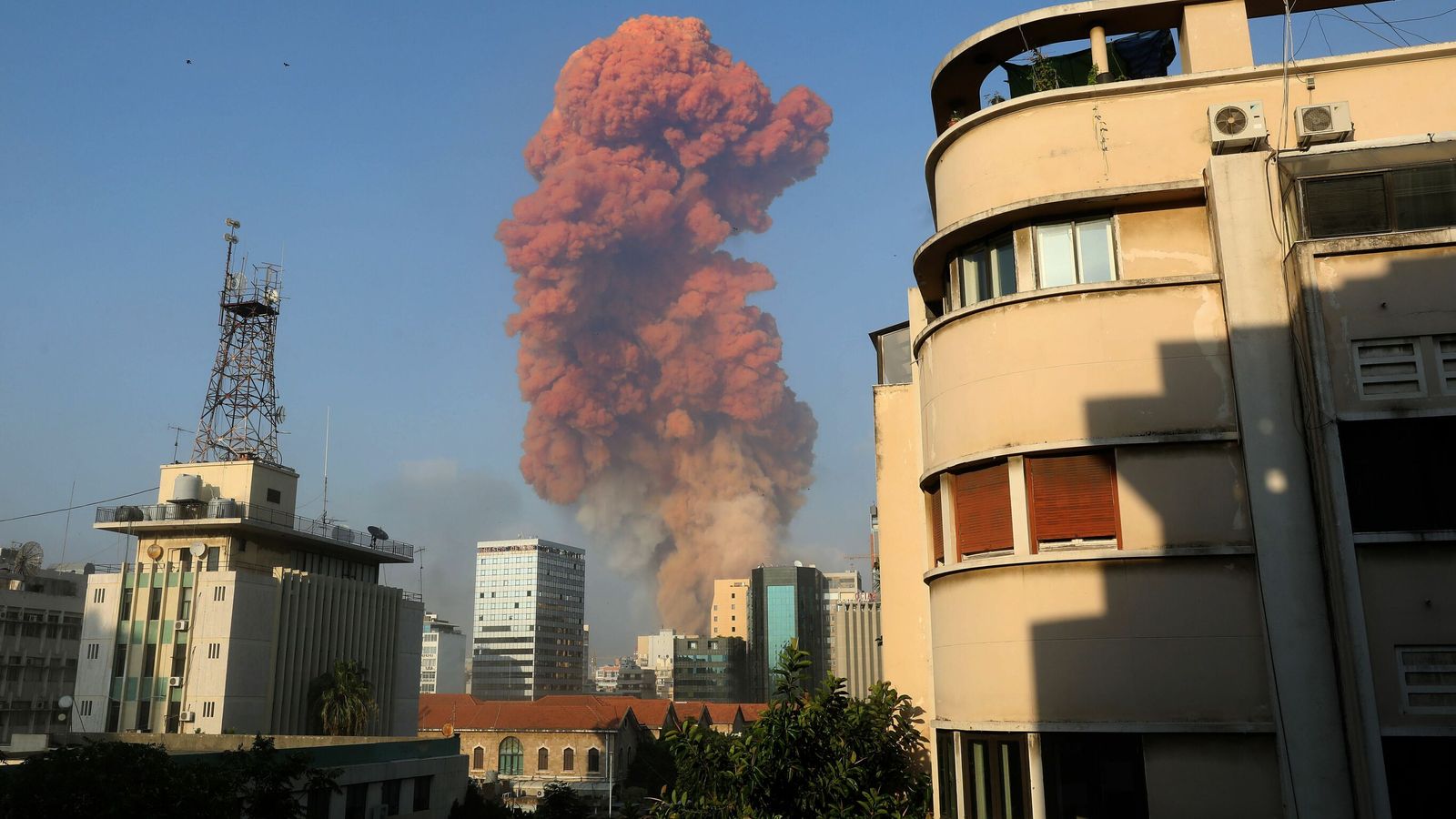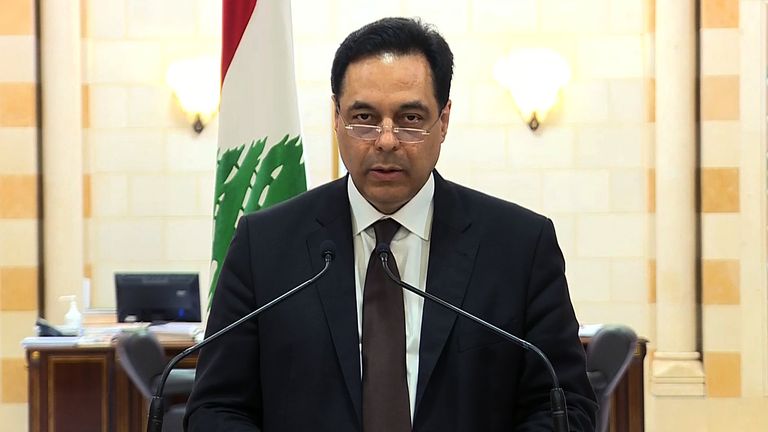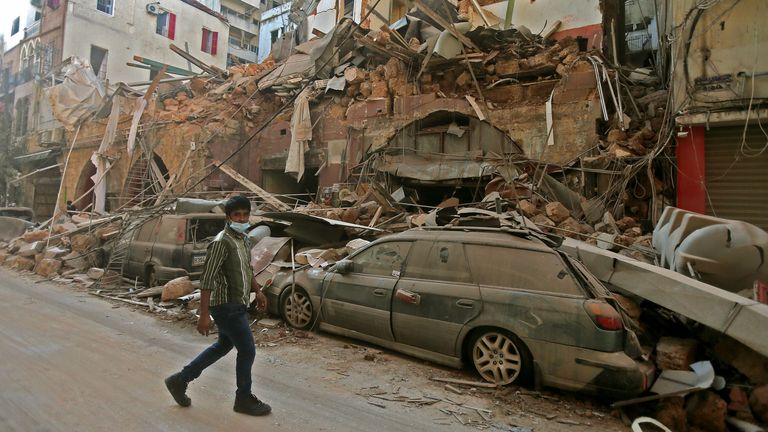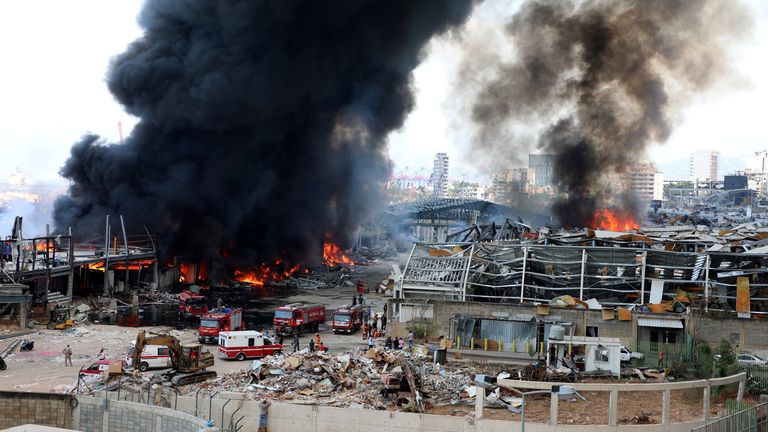Lebanon’s caretaker prime minister and three former ministers have been charged over the huge explosion at a Beirut port that killed almost 200 people and injured 6,500 others.
The country’s official news agency reported charges have been filed against Hassan Diab and former finance minister Ali Hassan Khalil, as well as former ministers of public works, Ghazi Zeiter and Youssef Fenianos.
Responding to the charges, Mr Diab said in a statement his conscience was clear over the August 4 explosion in Lebanon’s capital, after Judge Fadi Sawwan charged the four politicians with negligence leading to deaths.
Mr Diab said he was confident that his hands were clean and that he had dealt transparently with the file of the blast, adding that he was surprised to be targeted in the probe.
Top security officials and politicians knew the large stockpile of explosive material that ignited the explosion was stored at the port, but did nothing about it.
It emerged that 2,750 tonnes of ammonium nitrate – used as a fertiliser and in explosives – was left in a warehouse for six years.
The four politicians are the most senior people to be indicted so far in the secret investigation.
Anger had been building up over the slow investigation, a lack of answers and the fact that no senior officials had been indicted.
About 30 other security officials and port and customs officials have also been detained.
Protests erupted in the city following the disaster as residents blamed the country’s leaders for what happened.
State security compiled a report about the dangers of storing the material at the port and sent a copy to the offices of the president and prime minister on 20 July.
An investigation is focused on how the ammonium nitrate came to be stored at the port and why it was knowingly kept there.
The blast levelled the port, destroyed large parts of the city and forced around 300,000 people out of their homes.
Mr Diab, a former university professor, resigned few days after the blast, along with the country’s entire government.
Mr Zeiter was transport and public works minister in 2014, while Mr Fenianos had the role from 2016, until early 2020. Mr Khalil was finance minister in 2014, 2016 and until this year.
Both Mr Khalil and Mr Fenianos were sanctioned by the US in September – the first two officials outside of the Hezbollah group to face such measures.
One month after the August explosion, a huge fire broke out at Beirut’s port, frightening residents who were traumatised by the previous blast.




